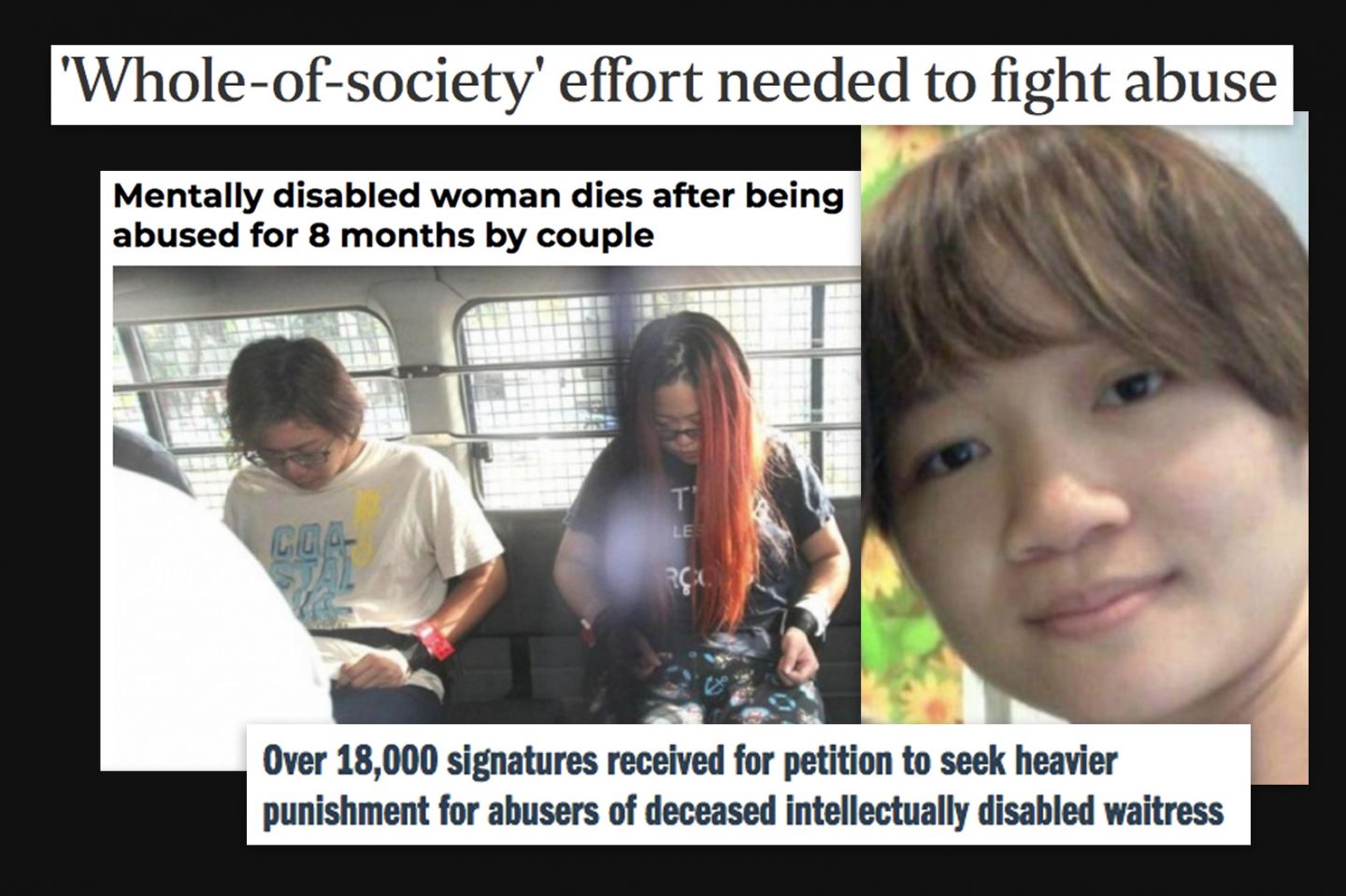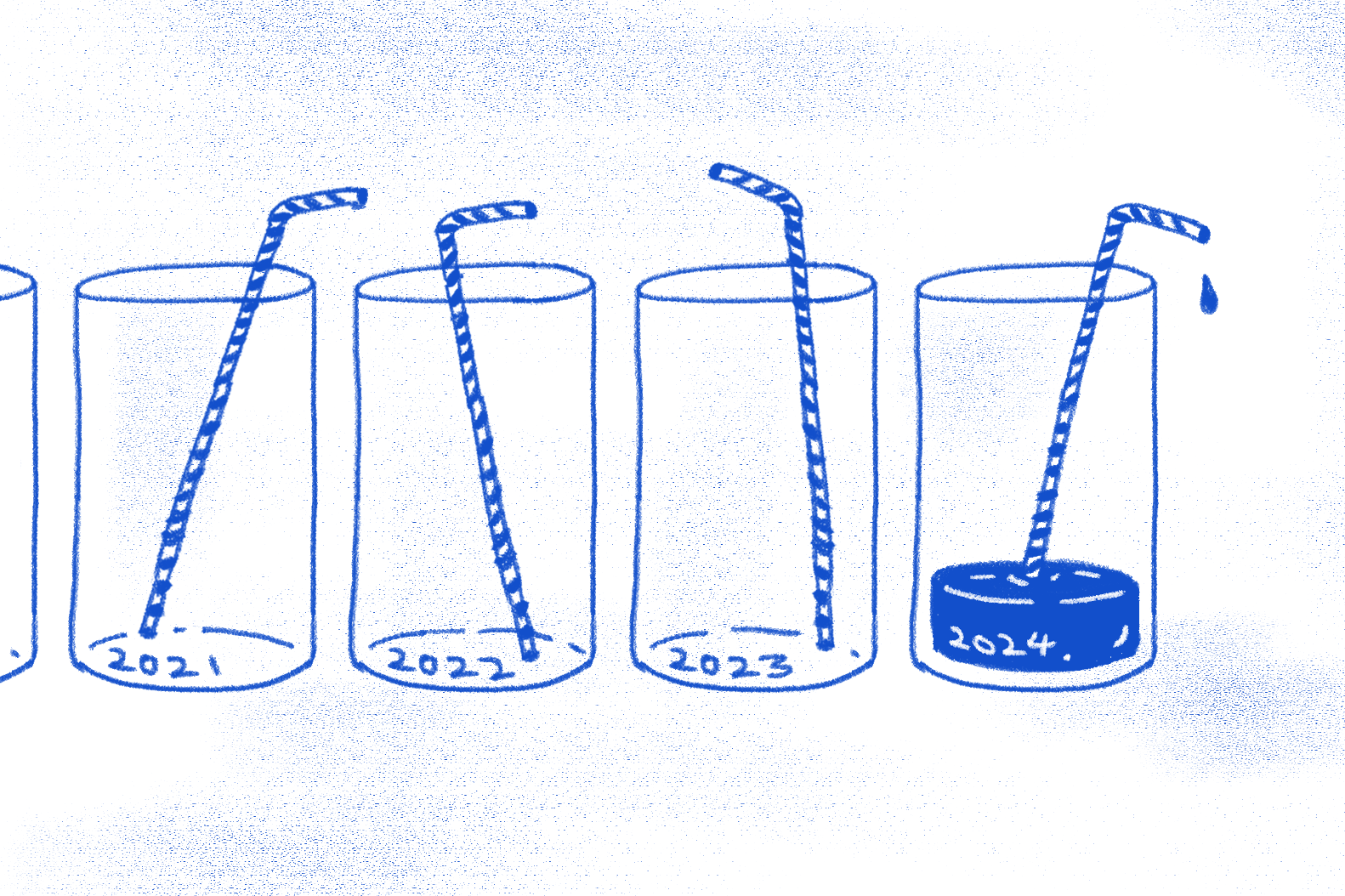“This is a tragedy for sure. There are no winners in this case,” said the defence lawyer for the couple who were today (December 1) sentenced for their part in the death of Annie Ee, a housemate who called them brother and sister despite 8 months of abuse at their hands.
Tan Hui Zhen and her husband Pua Hak Chuan – awaiting their sentencing for causing grievous hurt with household items to Annie Ee, an intellectually disabled friend who became their housemate – arrived at Court 3C of the Supreme Court at 9am on December 1.
For the next half an hour, the two, separated by a female security officer, did not exchange a word.
Pua, 38, was the more stoic of the two, spending the time with head slightly bowed, hands gently clasped, eyes closed behind black rimmed spectacles. A security officer hovered over his shoulder.
Tan, 33, looked the more nervous, occasionally whispering a question to another security officer sat between them.
At 9.15am, she started to look left beyond the guard to her husband, but was unable to catch his eye. At one point, her lean was so pronounced that she was almost doubled over at the waist, but still he would not look to his right.
Members of the public in the gallery discussed in hush tones the details of the case. “She doesn’t look like the news photos.” “What do you expect, it was two years ago, 2015, right?”
They didn’t. Her hair was cropped to shoulder length, and was all black, not tinted red. His had been shorn to a neat buzzcrop, mostly flecked with grey. You wouldn’t recognise them based on the prison van photo you see on news sites.
“In the face of the victim’s suffering, the accused did not repent. At the tragic end, the deceased died in a most undignified manner.”
At 9.30am, the defence lawyer, Josephus Tan, leant in close to a hole in the glass panel of the dock and spoke to Pua. Three minutes later, he spoke to Tan over the courtroom wired telephone – the first time Tan would speak in the morning. The lawyer spoke in Mandarin, with some force and urgency; Tan responded haltingly, in measured tones.
“You need to know the public opinion is against you,” the defence lawyer could be overheard saying. “They’re already treating me like the public enemy for taking this case.”
As Tan returned to his seat, he finally looked at Pua, and shook his head slowly.
By the time the judge took her seat at 9.55am, the gallery of the small courtroom was packed shoulder to shoulder with about 25 members of the public. One or two who came late had to be turned away at the door for lack of space.
You could recognise the relatives of those accused and the deceased by their silence. No tears, no wrung hands, just silence.
Conspicuously absent were the parents of the accused and the victim. A source said they chose not to be present – even on the day of sentencing – because of the tremendous pressure they’ve been placed under because of the public backlash.
“It is an appalling case. Both the accused have abused the victim in an inhumane and cruel manner. They fully abused the victim’s trust in them,” Judicial Commissioner Hoo Sheau Peng said in her sentencing.
“The abuse escalated over a prolonged period of about 8 months. It was almost a daily affair. Different implements were used. As a result of the beatings, kicking and stepping, the victims suffered multiple injuries. Well before her death, the victim was in a pitiable state.
“In the face of the victim’s suffering, the accused did not repent. They showed an utter lack of contrition.
“At the tragic end, the deceased died in a most undignified manner, after suffering pain over a course of hours and being deprived of medical attention.
“Not only did the accused physically abuse the victim, they also emotionally abused her, and financially exploited her. Substantial punishments are called for to reflect the gravity and severity of abuse committed.”
Tan was sentenced to 16.5 years in prison. Pua was sentenced to 14 years, with 14 strokes.
“What’s the use in crying? The facts are all out there. No point crying.” A diminutive elderly man berated a young lady, hair fully dyed blonde, who cried anyway.
Another man gently took her aside by the arm, turning her to face away from the older man.
“Our duty is to ensure access to justice and that has been done.”
Tan, who had pleaded guilty to more charges having played the greater part in Annie’s abuse, remained seated as the gallery slowly emptied, tears freely flowing down her face.
Pua remained stoic.
Josephus Tan, the defence lawyer, asked the Judge for some time for the guilty to say their goodbyes to the family members who were present. Not possible, not right now – another case was scheduled to be heard.
A few minutes later, the lawyer, speaking to reporters, said that with the case closed, his view was that the sentences were fair and just.
“Our duty is to ensure access to justice and that has been done.”









